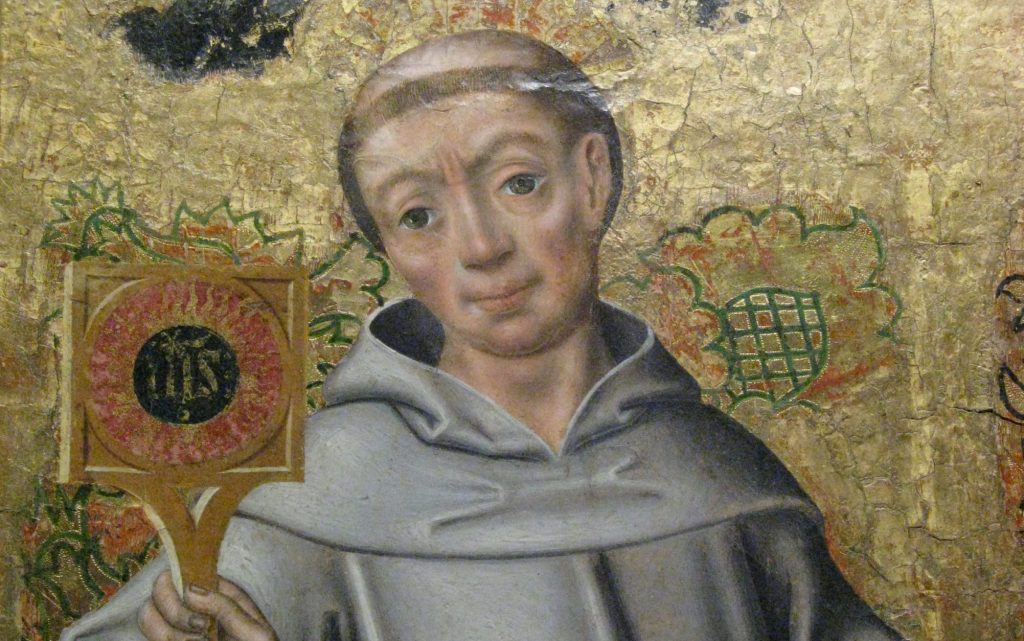St. Bernardine Albizeschi was born in Siena, Italy in 1380. His parents were members of the upper class, but Bernardine suffered tragedy when his mother died when he was three, and his father when he was seven. He was raised by his aunt Diana, who taught him to trust God’s plan.
Even as a child, Bernardine had a strong love and concern for the poor. He fasted often in order to help those in greater need. Before he became a preacher, he spent several years tending to the sick and dying, working in a hospital in Scala from 1397-1400.
While there, a plague broke out in Siena, and Bernardine was put in charge of the entire hospital. The plague wiped out most of the hospital staff, but Bernardine convinced 12 men to help him tend to the sick and dying for four months. He never got the plague, but spent months weakened and sick from his work.
When he recovered, Bernardine spent a year caring for his aunt before she died, and afterwards, at the age of 22, he moved to a small house outside the city, praying and fasting to learn God’s will for him.
In 1403, Bernardine joined the Franciscans of the Strict Observance, adopting a life of poverty and humility. While praying before a crucifix, he heard the Lord say to him: “My son, behold me hanging upon a cross. If you love me, or desire to imitate me, be also fastened naked to your cross and follow me. Thus you will assuredly find me.”
After he was ordained, Bernardine was sent to preach to the Italians who were falling away from Catholicism. St. Vincent Ferrer, a Dominican evangelist, preached in Italy that one of his listeners would go on to continue his work there. Bernardine heard this sermon and went on to fulfill it.
Because he was so devoted to God, Bernardine’s preaching was extremely effective. His listeners abandoned their vices and turned back to God. He gave priests one simple rule: “In all your actions, seek in the first place the kingdom of God and his glory. Direct all you do purely to his honor. Persevere in brotherly charity, and practice first all that you desire to teach others.”
Bernardine suffered an accusation of heresy and was threatened with death, but he persevered. He was offered the office of bishop three times, but turned it down.
For five years, Bernardine was the Vicar General for the Franciscan order, and revived its practice of strict living. In 1444, 40 years after his entry into religious life, he became sick while traveling. He continued to preach until he lost his voice.
St. Bernardine died on May 20, 1444. He was canonized just six years later by Pope Nicholas V.

